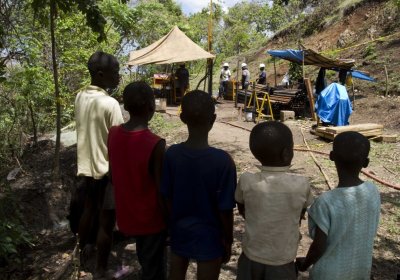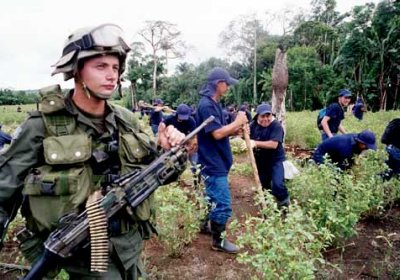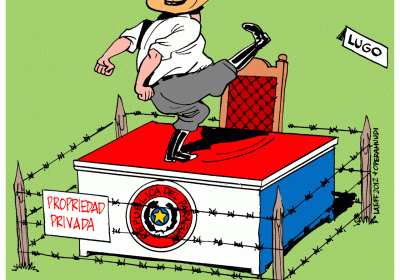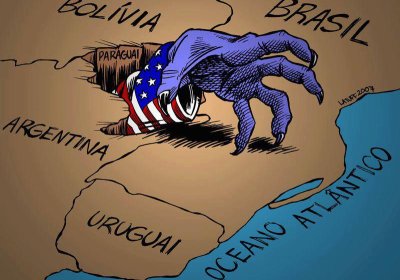Venezuela and the Bolivarian Alliance of the Americas (ALBA) have backed Ecuador against “threats” from Britain, after Ecuador granted WikiLeaks founder Julian Assange diplomatic asylum in the Ecuadorian embassy in London on August 16.
ALBA is an anti-imperialist bloc of eight nations that includes Ecuador, Venezuela, Cuba and Bolivia.
Swedish authorities want to extradite Assange from Britain to investigate allegations against him of sexual assault.
Latin America & the Caribbean
The text below is translated from the official Spanish transcript of the press statement issued by Ecuadorian Foreign Minister Ricardo Patino on August 16, explaining Ecuador’s decision to grant asylum to Julian Assange.
Supporters of WikiLeaks are planning emergency rallies in Sydney and Brisbane
This isn’t an obituary. Every now and again those who hope and pray for his death spread yet another rumour, only to be disappointed by a photo or a commentary in that unmistakable style, confirming that Cuban revolutionary leader Fidel Castro is very much alive and making the most of his twilight years.
When the inevitable does happen, the world, admirers and detractors alike, will pause for reflection. The corporate media will saturate our inner recesses with words and images that convey, for the most part, how the 1% appraise his life and legacy. Just imagine the gloating on Fox News.
People and governments across Latin America are rising up against foreign mining companies in a wave of revolt generating alarm among investors and their political operatives in the imperialist governments.
In Haiti, United States and Canadian gold mining companies are rubbing their hands over the riches that they believe await them. A recent study by Haiti Grassroots Watch estimates up to US$20 billion, at gold’s current price of $1600 an ounce, lies in the ground.
Cuba solidarity activists, members of Australia’s Latin American community and leftists from around the country will take part in a two-day conference in Sydney to pay homage to Cuban revolutionary Fidel Castro.
Video messages of support for Fidel from renowned leftist personalities will be screened alongside a full agenda of talks focused on Castro’s ideas, thoughts and legacy for the 21st century.
Cocaine, Death Squads & the War on Terror: US Imperialism & Class Struggle in Colombia
By Oliver Villar & Drew Cottle
Monthly Review Press,
New York, 2011
Dedicated to “the workers and peasants of Colombia”, Cocaine, Death Squads and the War on Terror is a serious and rigorous study of Colombian society.
For the authors, both lecturers in politics at Australian universities, the book represents a labour of love, condensing more than 10 years of research.
In a speech marking the one month anniversary of the parliamentary coup that overthrow left-leaning Paraguayan President Fernando Lugo, the ousted leader said on July 22 that a motivating interest for the coup-plotters was a sought-after deal between Paraguay and Montreal-based mining company, Rio Tinto Alcan (RTA).
“Those who pushed for the coup are those who want to solidify the negotiations with the multinational Rio Tinto Alcan, betraying the energetic sovereignty and interests of our country,” Lugo told supporters.
Bolivian President Evo Morales applauded on July 10 the agreement struck with indigenous peoples from the mining town of Mallku Khota, in the north of Potosi, to nationalise a Canadian-owned mining company.
Morales said the agreement ensures the state can continue recuperating natural resources to benefit the Bolivian people.
The head of state met with leaders from the ayllus (indigenous communities) in this region that were demanding the concession granting to the Canadian company South American Silver (SAS) be annulled.
Thousands of peasant workers took to the streets of Caracas on July 26 to hand over a list of programmatic suggestions to the government and show their support for Venezuelan President Hugo Chavez.
Arriving in Caracas, Venezuela’s capital, the first thing you notice is the extensive swathes of mountainside covered with poorly built, crowded, ad-hoc homes ― known locally as the barrios.
Caracas’s shanty-town barrios were built in response to the influx of migrants from the countryside during the 20th century. As Venezuela struck oil in the 1920s, it became easier and cheaper to use oil money to import foodstuffs. Many small farmers lost their livelihoods and poured into the capital in search of work.
The June 22 coup carried out against Paraguayan President Fernando Lugo was an important blow to progressive movements across Latin America.
Whether Paraguay's infamously right-wing local oligarchy and its parties that seized an opportunity to bring left-leaning President Fernando Lugo down by itself, or whether the push came from the United States government, is yet to be confirmed.
- Previous page
- Page 110
- Next page







